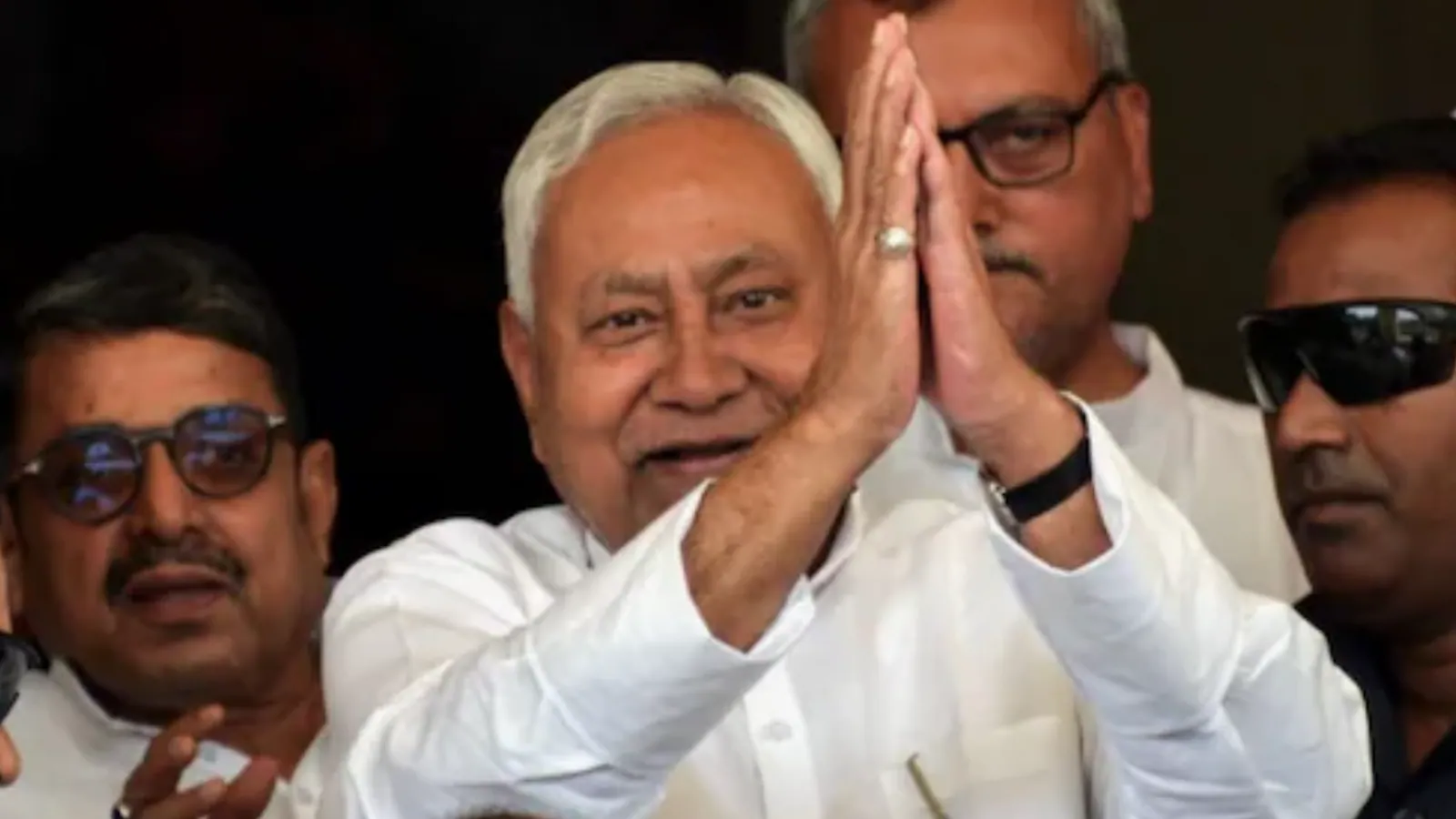By Madhuparna Das,News18,Pathikrit Sen Gupta
Copyright news18

In Bihar’s political theatre, its chief minister, Nitish Kumar, is rewriting his own script. Once the champion of “development without freebies”, and the face of socialist movements, he has now begun rolling out a string of financial assistance schemes, almost half a dozen in the past few weeks alone. The schemes include financial assistance for women, doubling the pension, free electricity, and the latest being the transfer of Rs 802.46 to 16,04,929 registered construction workers at the rate of 5,000 rupees per worker under the Bihar Bhawan and Other Construction Workers Welfare Board, as part of the Cloth Assistance Scheme.
With elections looming, Nitish is not leaving the promises to the election manifesto, which is likely to be released in mid-October. Instead, he is unveiling the financial assistance schemes in real time, as if to remind the electorate that he remains firmly in charge of the agenda.
His party colleagues insist this has been a deliberate action. “Nitish Kumar has always been a step ahead of his political opponents. Whether it was giving free electricity or increasing the production, distributing bicycles among schoolgoing girls, or the scholarships, or putting women at the centre of power with 50 per cent reservation in panchayats, 35 per cent in jobs, and direct benefits from pensions to student credit cards, he has always ruled the roost. From Seemanchal to Patna, his message is clear. Women are not just beneficiaries, they are the political force of Bihar’s future,” said Rajeev Ranjan Prasad, national spokesperson, JD(U).
Another senior leader in JD(U), who does not want to be named, said, “Nitish Kumar is unchallenged in the Kurmi base. The women have always reposed faith in him. Even in the Seemanchal area, Nitish Kumar is scripting a survival playbook after the 2020 setback. The Mukhyamantri schemes are more than sops. They are an extension of his Bihar model that once redefined development through roads, electricity, and education. By linking welfare with empowerment, Nitish Kumar is betting that women will deliver where caste arithmetic wavers.”
Pre-empting manifesto-moves
Bihar’s chief minister always wants delivery to precede rhetoric. The timing of Nitish Kumar’s welfare blitz is impossible to miss. Barely a month before the expected announcement of elections, the Bihar chief minister has launched a flurry of financial assistance schemes targeted at women, youth, and weaker sections.
Each announcement is carefully choreographed, sending out a message that his government is not waiting for campaign speeches or party manifestos; it is already delivering.
The JD(U) camp argues that Nitish is simply responding to the people’s needs in real time. The senior leaders claim his approach is “governance in motion” rather than manifesto posturing.
But politically, the calculus is far more layered. With the BJP aggressively consolidating its base and foregrounding caste arithmetic, Nitish appears to be preempting a potential squeeze on his traditional support base.
By directly putting cash or benefits in the hands of key demographics, he is seeking to override the narrow caste calculus with broader welfare appeal.
Falling for freebie politics
The series of announcements does not look like a random tactical swerve but a break from his long-standing ideological stance. For years, Nitish distanced himself from the politics of doles that defined Bihar under Lalu Prasad.
His model earlier was pitched as correcting roads, electricity, law and order, and institutions over handouts. That framework gave him credibility as the “sushasan babu.” But the present churn shows a politically evolving leader willing to redraw his lines. In an era when welfare politics has become near-universal, whether in BJP-ruled states or Congress bastions, staying away carries risks of being outbid.
The BJP’s push is particularly instructive. The Centre’s targeted schemes, starting from free foodgrains to women’s empowerment stipends, have now shown the electoral stickiness of welfare. For Nitish, matching or even surpassing these at the state level is both a shield and a weapon. It shields him against alliance partner BJP’s attempt to monopolise welfare politics, and it arms him with a message that he is not merely a junior partner in the coalition but a leader with his own card set.
Ultimately, Nitish’s new electoral approach reflects both pragmatism and vulnerability. Pragmatism, because no serious player in today’s politics can ignore the pull of direct benefits. Vulnerability, because this pivot implicitly acknowledges that development alone is no longer enough to ensure electoral loyalty. By showing his hand early, scheme by scheme and one after another, Nitish hopes to set the tone before the campaign heat peaks.



